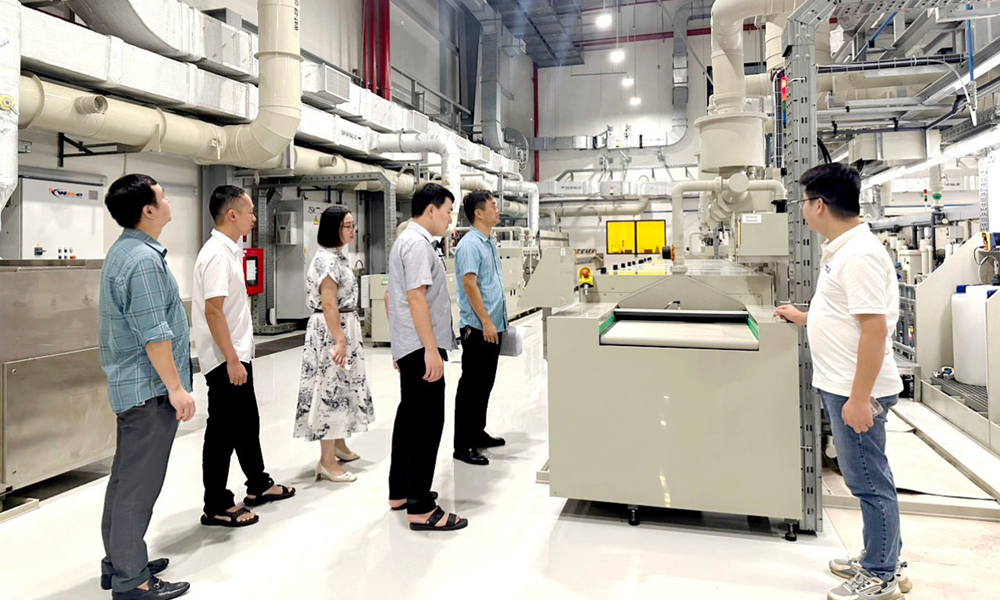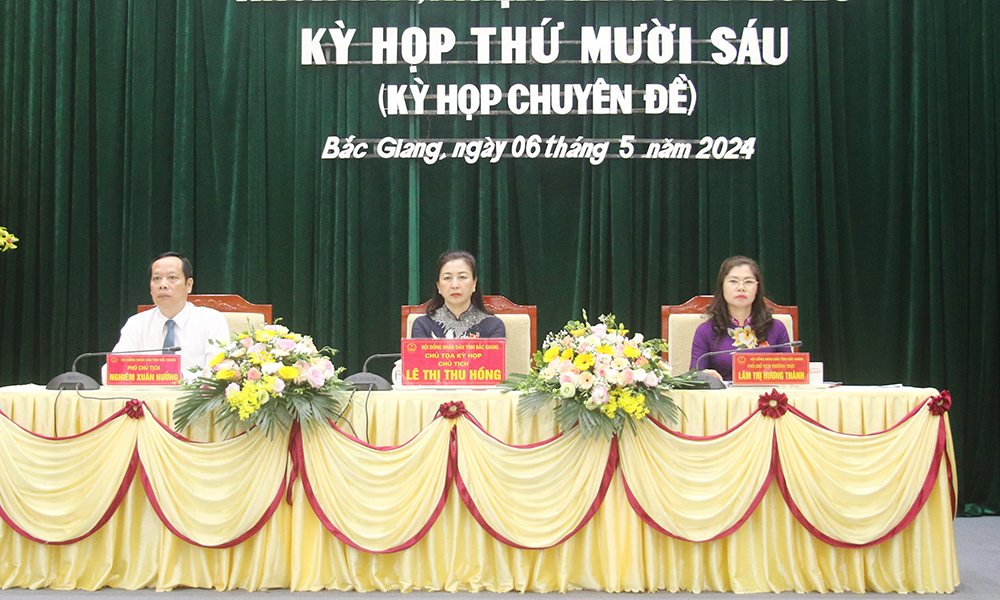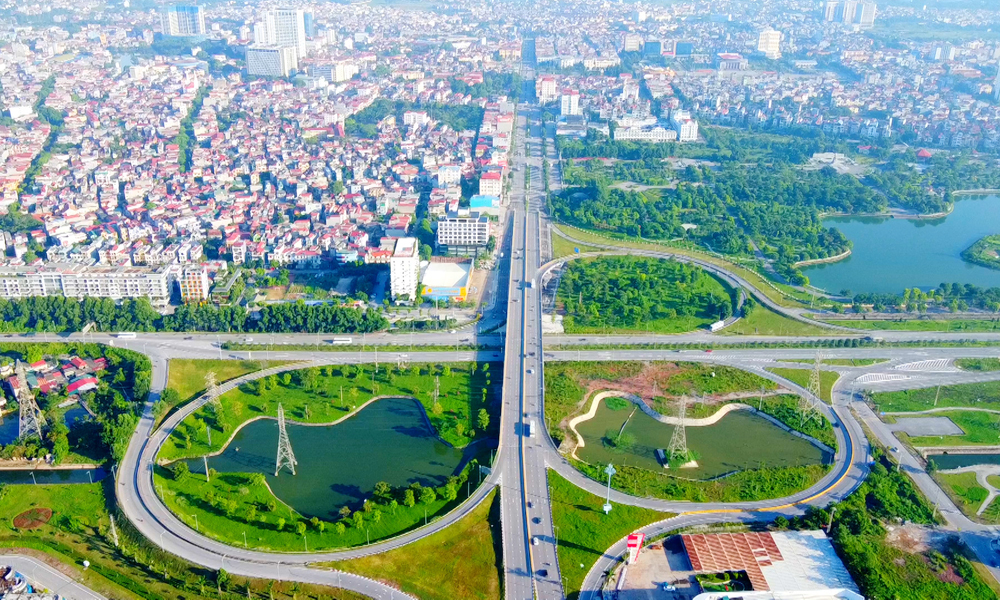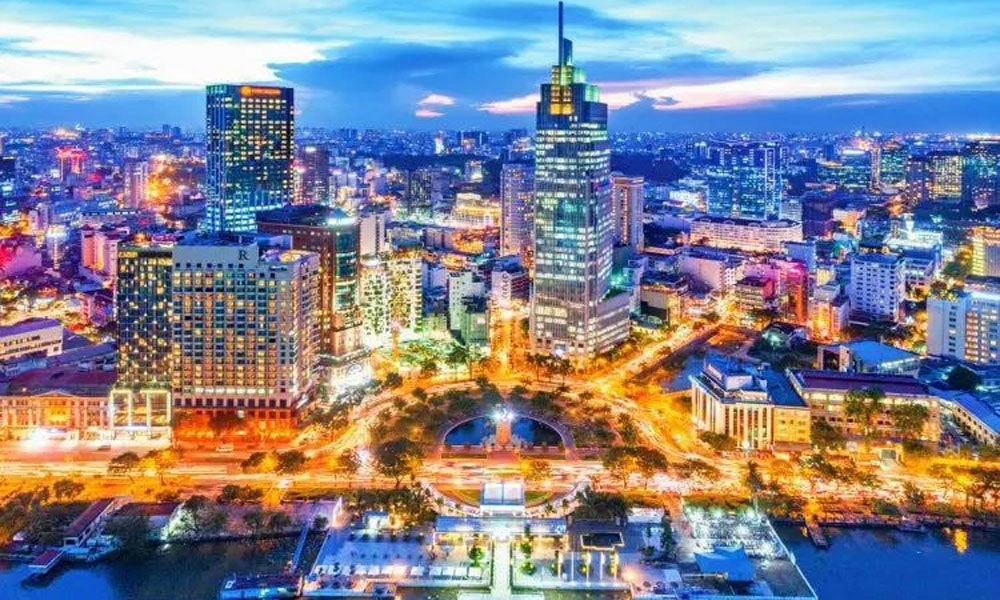Bac Giang strives to improve and upgrade green index
BAC GIANG – To sustainably maintain and upgrade the provincial green index (PGI), the units and localities in Bac Giang province have recently focused on implementing many solutions to improve component indicators.
PGI is a set of indicators to evaluate and rank environmentally friendly localities. This index is evaluated according to criteria such as the level of concern and investment in environmental protection of local authorities and other environmental issues; level of application of environmentally friendly technology; management level and environmental behavior of local enterprises...
|
|
|
The working group of the Department of Natural Resources and Environment inspects the exhaust gas treatment system of an enterprise in Dinh Tram Industrial Park. |
The PGI was firstly announced in 2022. According to the results announced by the Vietnam Federation of Commerce and Industry, in 2022 Bac Giang province ranked 8th out of 63 provinces and cities nationwide with a total score of 16.43.
Promoting the achieved results, on June 28, 2023, the Provincial People's Committee issued a Plan to improve and upgrade the PGI for the period 2023-2025. The specific goal is to maintain the province's ranking in the top 10 centrally run provinces and cities with the leading PGI.
Implementing the above plan, the Provincial Women's Union and the Provincial Youth Union directed to launch many activities and movements on environmental protection such as Green Friday, Green Sunday; "Building a 5-zero, 3-clean family" campaign among others.
Besides, the Municipal People's Committee applied different solutions to reduce environmental pollution and paid special attention to ensuring minimum environmental standards in the area.
To improve and upgrade PGI, the local businesses have increased the application of clean technology, advanced technology, high technology, low carbon emissions in production. The review and assessment by specialized agencies proved that local businesses basically apply clean technology, advanced technology, high technology with low carbon emissions in production.
According to the province's plan, by 2030, 100% of industrial parks and clusters in operation will have wastewater treatment systems. In the province, 28 enterprises and facilities generating large waste sources have also installed automatic monitoring stations and transmitted data to the Department of Natural Resources and Environment with a total of 65 automatic emission and wastewater monitoring stations.
The whole province currently has 66 hygienic domestic solid waste treatment facilities in localities. In addition, the province has attracted investors to implement the Bac Giang Waste Treatment and Power Generation Plant project with a processing capacity of 750 tonnes of household waste per day and a power generation capacity of about 12 MW; solid waste treatment plant construction project in Dong Lo commune (Hiep Hoa district) with design capacity of solid waste treatment of 650 tonnes per day...
Accordingly, the rate of household solid waste treated hygienically in the province reached nearly 86%; in which the rate of collected urban solid waste hit nearly 98% (99 % were treated to ensure standards). The province targets to treat 95 % by 2030.
To achieve the set goal of the PGI by 2025, in addition to implementing environmental protection solutions and a green lifestyle, local authority is currently promoting investment attraction and developing new green production industry, limiting the development of industries that generate large amounts of waste, causing pollution and environmental degradation.
The province also focuses on applying green technology, management and control systems based on good practice to save resources, reduce emissions and improve the ecological environment associated with restructuring industrial production, prioritizing to attract foreign investment in a sustainable manner.
Currently, the province is orienting to attract investment in building industrial parks and clusters in the direction of circular economy and ecological industry to form an "Industrial Ecosystem".
At the same time, the province pays due attention to increasing the operational fund for environmental management agencies, improving equipment and gradually adding state budget spending on environmental protection and dealing with climate change.
Thuy Ninh
 Bắc giang
Bắc giang


.jpg)
.png)










Reader's comments (0)